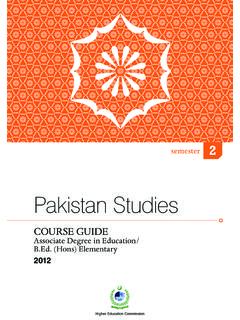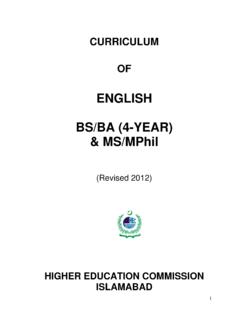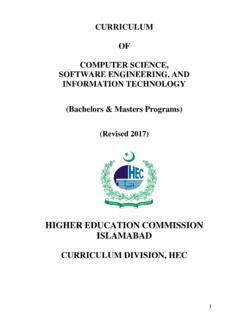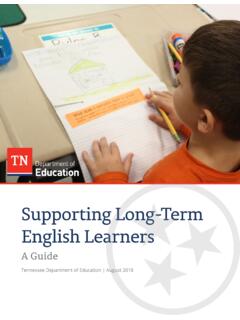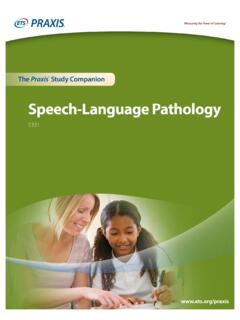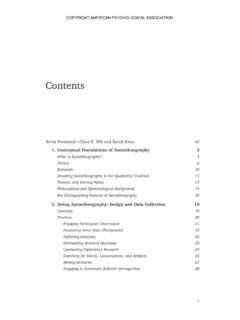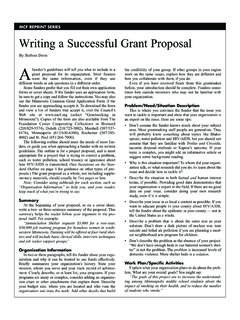Transcription of School, Community and Teacher
1 Semester 4 school , Community , a n d Te ach e rCOURSE GUIDEA ssociate Degree in (Hons) Elementary2012 This product has been made possible by the support of the American People through the United States Agency forInternational Development (USAID). The contents of this report are the sole responsibility of the authors, and do not necessarily reflect the views of USAID or the United States Support: Education Development Center (EDC); Teachers College, Columbia UniversityASSOCIATE DEGREE IN (HONS) ELEMENTARYiiForewordTeacher education in Pakistan is leaping into the future. This updated Scheme of Studies is the latest milestone in a journey that began in earnest in 2006 with the development of a National Curriculum, which was later augmented by the 2008 National Professional Standards for Teachers in Pakistan and the 2010 Curriculum of Education Scheme of Studies.
2 With these foundations in place, the Higher Education Commission (HEC) and the USAID Teacher Education Project engaged faculty across the nation to develop detailed syllabi and course guides for the four-year (Hons) Elementary and two-year Associate Degree in Education (ADE). The syllabi and course guides have been reviewed by the National Curriculum Review Committee (NCRC) and the syllabi are approved as the updated Scheme of Studies for the ADE and (Hons) Elementary programmes. As an educator, I am especially inspired by the creativity and engagement of this updated Scheme of Studies. It offers the potential for a seismic change in how we educate our teachers and ultimately our country s youngsters.
3 Colleges and universities that use programmes like these provide their students with the universally valuable tools of critical thinking, hands-on learning, and collaborative am grateful to all who have contributed to this exciting process; in particular the faculty and staff from universities, colleges, and provincial institutions who gave freely of their time and expertise for the purpose of preparing teachers with the knowledge, skills, and dispositions required for nurturing students in elementary grades. Their contributions to improving the quality of basic education in Pakistan are incalculable. I would also like to thank the distinguished NCRC members, who helped further enrich the curricula by their recommendations.
4 The generous support received from the United States Agency for International Development (USAID) enabled HEC to draw on technical assistance and subject-matter expertise of the scholars at Education Development Center, Inc., and Teachers College, Columbia University. Together, this partnership has produced a vitally important resource for Pakistan. PROF. DR. SOHAIL NAQVI,Executive Director,Higher Education Commission,IslamabadHOW THIS COURSE GUIDE WAS DEVELOPEDiiiHow this course guide was developedAs part of nation-wide ref or ms to improve the quality of Teacher education, the Higher Education Commission (HEC) with technical assistance from the USAID Teacher Education Project engaged faculty across the nation to develop detailed syllabi and course guides for the four-y ear (Hons) Elementary and two-year Associate Degree in Education (ADE).
5 The process of designing the syllabi and course guides began with a curriculum design workshop (one workshop for each subject) with faculty from univer sities and colleges and officials from provincial Teacher education apex institutions. With guidance from national and international subject experts , they reviewed the HEC scheme of studies, organized course content across the semester, developed detailed unit descriptions and prepared the course syllabi. Although the course syllabi are designed primarily for Student Teachers, they are useful resource for Teacher educators too. In addition, participants in the workshops developed elements of a course guide. The course guide is designed for faculty teaching the (Hons) Elementary and the ADE.
6 It provides suggestions for how to teach the content of each course and identifies potential resource materials. In designing both the syllabi and the course guides, f aculty and subject experts wer e guided by the National Professional Standards for Teachers in Pakistan 2009 and the National Curriculum 2006. The subject experts for each course completed the initial drafts of syllabi and course guides. Faculty and Student Teachers started using drafts of syllabi and course guides and they provided their feedback and suggestions for improvement. Final drafts wer e reviewed and approved by the National Curriculum Review Committee (NCRC).The following faculty were involved in designing this course guide: Muhammad Tahir Khasi, GCEE Quetta; Sarfraz Ahmad, GCET Faisalabad; Saira Soomro, University of Sindh; Zarina Rashid, Sardar Bahadur Khan Women University, Quetta; Abdul Khaliq, PITE Balochistan; Jalat Khan, GECE Quetta; Muhammad Ismail, GECE Hyderabad; Piaro Khan, GECE Hyderabad; Mahvish Naseem, Fatima Jinnah Women University, Rawalpindi; Bakhtiar Ahmed, RITE (M) Peshawar; Shafqat Ali, University of Education, Lahore; Dr.
7 Amir Hashmi, IER, Peshawar University; Dr. Asaf Nawaz, Hazara University; Syed Takhliq u-Uzaman, GCET (M) College, DEGREE IN (HONS) ELEMENTARYS ubject expert guiding course design: Dr. Rashida Qureshi, Shaheed Zulfik ar Ali Bhutto Institute of Science and Technology (SZABIST)Date of NCRC review: 3 March 2012 NCRC Reviewers: Dr. J aved Iqbal, Kar akoram International Univer sity, Gilgit; Dr. Abdul Hameed, Univer sity of Management and Technology, Lahore; Dr. Raf iqullah, Gomal Univer sityTable of ContentsSyllabus 08 Introduction 18 Sample Assignments 21 Course Assessments 23 UNIT 1 Society, Community , and education 26 UNIT 2 Understanding social interaction in schools and communities 36 UNIT 3 school and culture 44 UNIT 4 Relationships between school and Community 53 UNIT 5 Social institutions 59 UNIT 6 The Teacher s role in school and the Community 65 UNIT 7 The working context of Pakistani teachers 71 Methods and strategies 87 Faculty resources 82 Syllabus school , Community , A ND TEACHERCOURSE SYLLABUS.
8 school , Community , and Teacher09 school , Community , AND TEACHERYear/semesterYear 2, semester 4 Credit value2 credits, 1 laboratory creditPrerequisitesSuccessful completion of semesters 1 3 Course descriptionThe purpose of this course is to provide Student Teachers with a strong foundation for understanding the relationship between and among teachers, the school , and the fam-ilies and Community that support the school . Basic conceptualizations of educational institutions and the role of the Teacher in relating to these institutions will be considered. Student Teachers will also explore how cultural, social, and historical forces have shaped their understanding of the relationship teachers have with schools, communities, and families in Pakistan.
9 The course will explore the social context of schooling and examine how the work of teachers is nested within school and Community . It will provide orien-tation to the process of socialization in schools and how social factors affect education. Student Teachers will have opportunity to put this knowledge into practice in the accompanying one-credit laboratory by studying a school and its Community , so that as teachers, they can mobilize support for educational programmes and contribute positively to their communities. Practical application of the course will be emphasized as Student Teachers explore teaching and learning within both the school and the Community .
10 They will identify strategies, practices, and relationships that have proven fruitful within familiar contexts, and learn how to identify and respond to challenges in school , Community , and Teacher relationships. Student Teachers will identify how culture, gender, special needs, equity and equality, and collaborative working condi-tions affect the school and outcomesStudent Teachers will be able to: analyse and describe relationships between teachers, the school , and the families and Community that support the school identify how the Teacher s role is influenced by social and cultural factors that affect education in schools and their communities recognize and value diverse cultural, traditional, and religious values and their students learning needs in school and in the Community list the social factors affecting education and how they can support the development of education nationally and, in particular, locally explain their role as role models for students and the Community in DEGREE IN (HONS)
